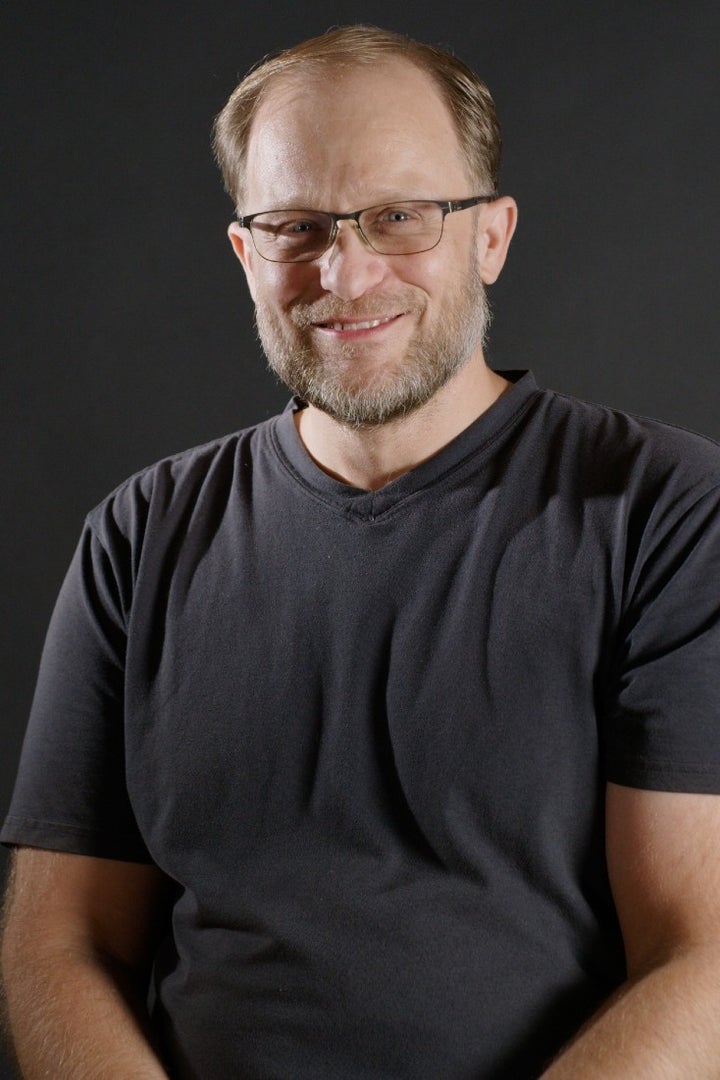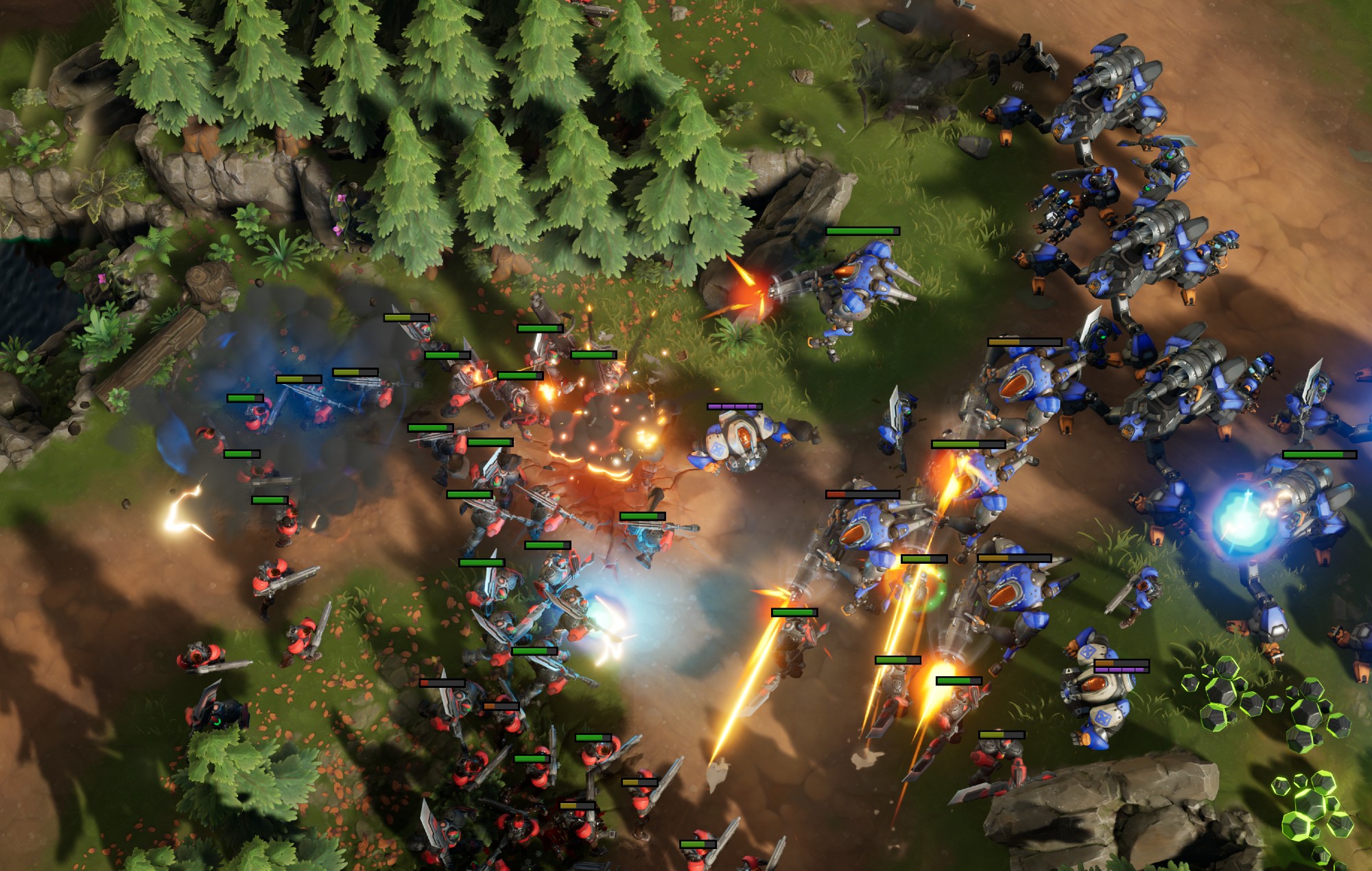Plenty of GamesIndustry.biz readers are familiar with the concept of crowdfunding, with well over a decade of Kickstarter campaigns helping to bring many a game to market. Less common, however, is equity crowdfunding.
Via the website StartEngine, Frost Giant Studios launched a campaign earlier this year that enables players to buy shares in the company with the promise of (hopefully) sharing in its long-term success.
The campaign aims to raise between $15,000 and $5 million, and at the time of writing it’s approaching the $1 million milestone. We caught up with CEO Tim Morten, who tells us equity crowdfunding is essentially a way to help the studio to self-publish its debut game, free-to-play real-time strategy outing Stormgate.
“We explored various options for publishing Stormgate, and I think maybe from an outside perspective, developing and publishing kind of get lumped together in people’s minds, but they’re very different activities,” Morten explains. “Building the game involves a team of developers, engineers, designers, artists, producers. Publishing a game is really a marketing activity. And so, when we built the company, we built the company primarily to develop the product, with the thought that we’ll figure out how we’re going to go to market, self-publish, or with a publisher, later on.
“Now that early access is approaching this summer, it was time for us to make that decision, and we really wanted to be able to make our own decisions with respect to the design and also the launch of the product. And working with a publisher, as much as they bring a lot of marketing expertise and marketing capital, you give up some of that agency. So, really, the StartEngine campaign, the stock offering that we are making, is about enabling Frost Giant to retain its own decision-making and bring Stormgate to market with our vision, instead of giving up some of that power to a publisher.”
It’s worth making clear that this is not the only source of funding Frost Giant has tapped into. Since Morten co-founded the studio in 2020 with fellow Blizzard alumni Tim Campbell, the team has secured $34.7 million in Seed and Series A funding. Investors include Riot Games, Bitkraft, Kakao Games, 1up Ventures and Griffin Gaming Partners, among others.
The studio also successfully completed another crowdfunding campaign, with the Kickstarter for Stormgate raising $2.4 million from over 28,000 backers. Since Frost Giant has already secured a significant amount of funding — including from the public — is it hard to ask players to invest further into the company?
“The reality is that big games that get made today are spending in excess of $100 million. So, for us to go up against AAA games, for us to be a game that really stands as the next-generation RTS of the coming years, it does require a lot of investment,” Morten says.
“We’ve raised just under $35 million to date — that’s a big number, but it’s a much smaller number than most AAA games actually deploy against building their products. And we are really fortunate to be in a position that we got the funding that we need to get to our early access launch, but we want to launch strongly, and we want to launch in a way that puts us at the same level as AAA games from other publishers.
“So, if there’s a playerbase out there that supports that, this is an opportunity for them to be a part of our success. And really, we’ve been very gratified by the support that we’ve seen from the community so far.”
Frost Giant was formed after Campbell finished his work directing InXile Entertainment’s Wasteland 3. Morten and Campbell gathered a core team of fellow former StarCraft 2 developers and began work on their own SnowPlay technology as well as a game to be built upon it.
“This wave of venture-backed companies predicates approaching things in a new way. This is pioneering the way that games get financed”
Morten adds that Frost Giant was fortunate to be looking for investment around the time that venture funding in video games was starting to ramp up in 2018 to 2019. He estimates the Stormgate studio was one of the first companies in that wave of venture-backed studios, and so far he believes the model has many advantages over seeking a publishing deal or bootstrapping as other independent developers need to do.
“This is a way for us to have a good budget, but still also have agency over what we’re building,” he says. “I do think that this wave of venture-backed companies predicates approaching things in a new way. This is pioneering the way that games get financed.”
The funding landscape is more challenging than ever. In recent months, we’ve seen studios such as Die Gute Fabrik, Keoken Interactive and Paladin Studios close their doors due to lack of funding. Morten recognises how tough it is out there, but seems confident that things will turn around again.
“Last year, there was a large contraction in the amount of venture funding that went into games and, frankly, into the amount of venture funding that got deployed at all as a result of higher interest rates, and macroeconomic conditions in general,” he says. “That certainly changed the thinking of a lot of founders in terms of making more strategic partnerships, doing more publishing deals, and in our case, partnering with the community to still have strong launches for products. I do think that it’s a bit of a pendulum swing.
“COVID created a lot of over-expectations for the industry. The pendulum kind of swung back to correct. Certainly, those macroeconomic conditions like interest rates are still correcting. So, I do expect the pendulum to keep swinging, and for there to be something of an increase again in deployment of venture capital, but right now is a period where there’s a 75% to 85% contraction in terms of the amount of capital that venture is deploying.”

For now, Frost Giant is focused primarily on the development of Stormgate. Morten tells us the Kickstarter campaign alone tells the studio it’s on the right track with a real-time strategy game, pointing to how the genre has seen very little disruption over the past decade.
“It’s been our belief from even before we started Frost Giant that RTS has a huge audience of people who love it, who have just not had big new content to play,” he says. “Microsoft is still making Age of Empires games, and those are wonderful. Sega is still making Total War and Company of Heroes games, and those are wonderful.
“We’ve raised just under $35 million to date — that’s a big number, but it’s a much smaller number than most AAA games”
“But for the players who played Blizzard’s RTS games, or even the Command & Conquer series… there hasn’t been a big new release since 2010 when StarCraft II came out. So that pent-up demand for new content and for a new original game is substantial, and I believe the Kickstarter validates that.”
Frost Giant isn’t aiming to make a real-time strategy game that harks back to the good ‘ol days; instead, it’s boldly claiming Stormgate will represent the next generation for the genre. This stems from a mix of factors; for one thing, Frost Giant is placing a lot more emphasis on approachability, making it easier to construct buildings or units without having to click on the relevant structure or a worker unit. It is also focusing more on teamwork — you can even play the main campaign as a group of three — following how other genres have evolved in recent years.
“We’ve been very careful to retain the one-versus-one experience and the solo campaign experience that core RTS players have loved throughout the whole time of the genre,” he assures. “But looking at all of the other genres — from MOBA to team shooters — there are just so many different emergences of team-based gameplay. And we really believe that games that are more social encourage you to have relationships with your friends online, as much as in person, and that’s a great addition to games.”
He adds that the approachability improvements also play a role here: “It’s possible to come into the game as a new player with your friends who are more experienced players, and on the fly, get a tutorial from the game, so that you can join them, and right away have that social experience, but still get enough orientation that you know what you’re doing on the map.”
Stormgate will be a free-to-play title, but while it may sound like Morten and his team primarily specialised in premium games in the past, he adds that they have specific experience that lends well to what they’re attempting with this new game.
“We were incredibly fortunate to be involved in the transition of StarCraft II from premium to free-to-play in 2017, and we got to try different things with that highly engaged tail player base for StarCraft II, to understand what types of content resonated with those players,” Morten explains.
“Our motivation at that point was twofold. We wanted to bring more players into the ecosystem by taking away price as a barrier to entry, but we also wanted to continue to support the game in a way that didn’t require players to wait two years between updates. So, it really was adapting StarCraft to more of a live service model, which indeed is the inspiration for what we’re doing with Stormgate.”

The StarCraft transition taught the Frost Giant team that three types of content were particularly popular with players: continuing the campaign, new heroes for the co-op mode, and cosmetics.
“[We adapted] StarCraft to more of a live service model, which indeed is the inspiration for what we’re doing with Stormgate”
“Each of those were almost equally popular. Different player segments attached to those different types of content. So, we had that chance to validate, what are the things that players really enjoy?
“In a lot of ways, it’s taking content that we used to bundle all up in a big box, and just making it a la carte for players to choose, what’s the type of content that they want to spend on, so that they don’t have to spend for everything? And that really seemed to be well-received by the StarCraft audience, and so we’ve used that as our inspiration for Stormgate.”
Having released a popular demo during February’s Next Fest, Frost Giant is gearing up to launch Stormgate in Early Access this summer. There’s no specific roadmap for how long it will be before the game fully launches — that will depend on the feedback from the community — but Morten concludes that there are plenty of success stories to take examples from.
“Looking at Baldur’s Gate 3, I think Larian is kind of the poster child for what a great early access programme looks like. They spent multiple years. I think in our case, we would expect to spend at least a year, but exactly how long we spend remains to be determined.”



